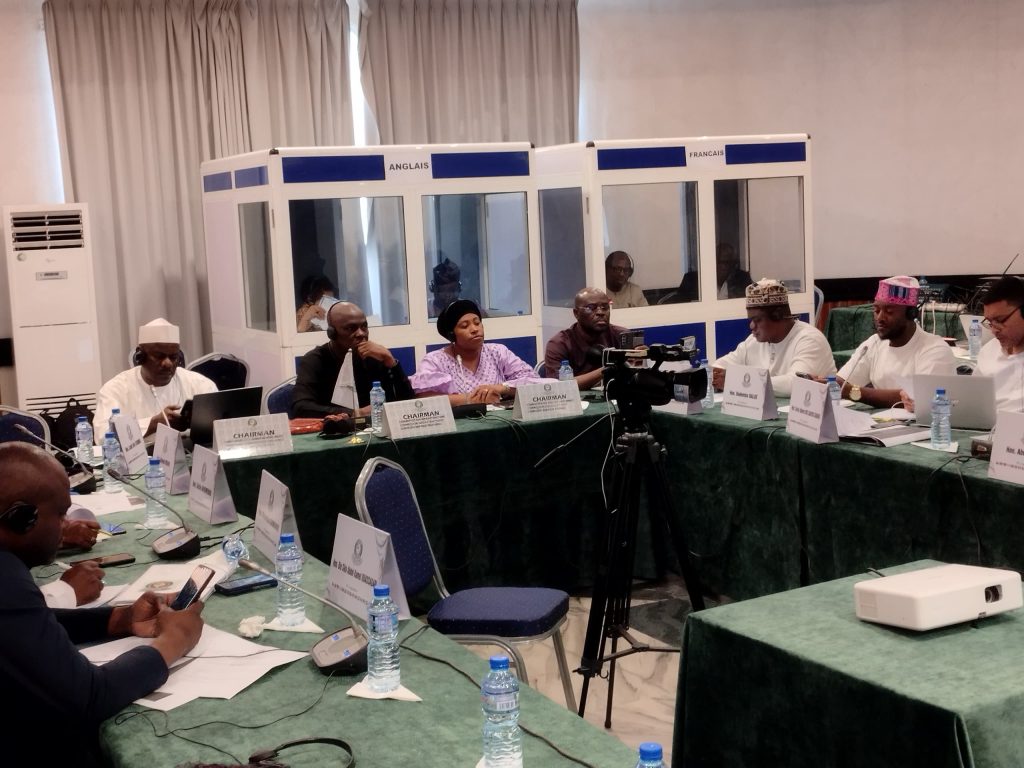The Economic Community of West African States (ECOWAS) has announced a target of January 2026 for the implementation of a 25% reduction in passenger service and security charges on air travel within the sub-region.
The move is a key part of a broader strategy to tackle the notoriously high cost of flying within West Africa, which studies suggest are among the highest globally. Research indicates that passengers in the ECOWAS region face as many as 66 different charges, while airlines are burdened with 112 distinct levies, significantly inflating ticket prices and hindering connectivity.
A committee of aviation experts has recommended a new regional approach, which includes the elimination of all taxes on air travel in line with International Civil Aviation Organization (ICAO) standards. The proposal also calls for a 25% reduction in airport passenger service and security charges, to be implemented from January 1, 2026, following consultations with airport and civil aviation authorities.
The committee stressed that the savings from these measures must be reflected in airline ticket prices, urging carriers to pass on the benefits to passengers. Airports are also being encouraged to adopt more business-friendly practices to enhance efficiency, reduce costs, and increase revenue from non-aviation sources.
An oversight committee is expected to be established by June 2025 to monitor the implementation of these changes. The full proposal now awaits formal approval from the ECOWAS Authority of Heads of State and Government in the coming months.
Chris Appiah, Director for Transport at the ECOWAS Commission, told reporters that the policy has the potential to be transformative. He noted that removing certain taxes and reducing charges by 25% could boost air travel demand in the sub-region by as much as 40%.
“We’ve conducted comprehensive studies and found that ECOWAS airports charge significantly more than their counterparts elsewhere in Africa—up to 103% more in passenger service charges and 53% more in security charges,” Mr. Appiah explained.
He added that the policy aims to eliminate taxes that do not comply with ICAO standards, such as security and tourism levies, and to ensure more transparent pricing for consumers. “You don’t tax air transport to promote tourism—it defeats the purpose,” he stated.
The initiative stems from a 2014 ECOWAS summit in Abuja, where leaders recognised the detrimental economic impact of high airfares and tasked the Commission with finding a solution. ECOWAS has since worked with international and regional partners, including IATA, AFRAA, AFCAC, and the African Union, to develop a harmonised strategy aligned with global best practices.
Mr. Appiah revealed that simulations suggest air traffic within the region could increase by over 40% within a year of the proposed changes, potentially generating more than $500 million in additional revenue. “Reducing charges will not reduce revenue; rather, it will increase it by stimulating demand,” he said.

He pointed out that the most successful airports and airlines in Africa, predominantly in the North, East, and Southern regions, operate with zero taxes on air transport services. In contrast, ECOWAS airports lag behind, with only Lagos and Accra featuring in the top 10 busiest intra-African routes.
The implementation of the policy will depend on individual member states. “ECOWAS will lead coordination, but each government must engage its finance ministries and parliaments to remove the identified taxes and reduce charges,” Mr. Appiah emphasised.
The strategy also includes a push for greater collaboration among airlines through code-sharing agreements and joint ventures. This would allow passengers to travel across the region using multiple carriers on a single ticket, reducing operational costs and improving efficiency.
Mr. Appiah also highlighted the importance of private sector leadership in the air transport industry, noting that government-run airlines often face inefficiencies. He cited successful models like Ethiopian Airlines, stating that even state-owned carriers must operate independently of government bureaucracy to thrive.
With all ECOWAS member states signatories to ICAO conventions, the bloc believes that now is the opportune time to align regional air transport policies with global best practices, unlocking the full potential of West African air travel for business, tourism, and regional integration.





Add Comment